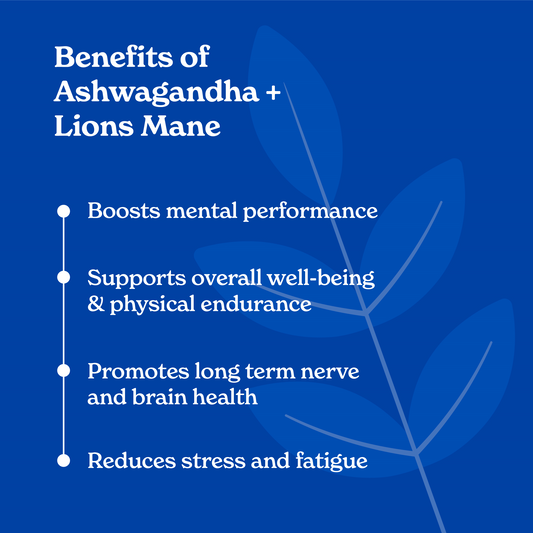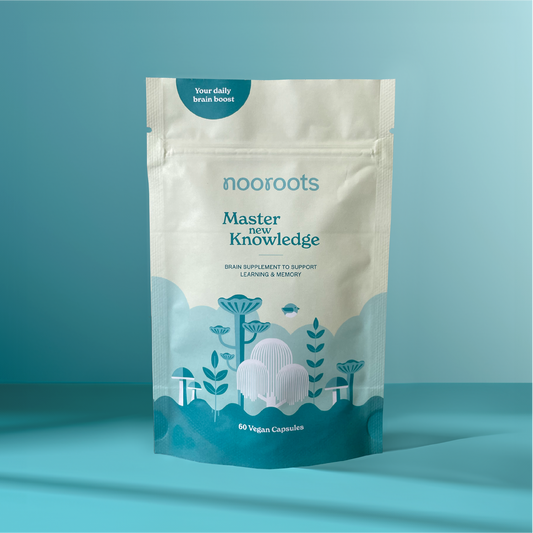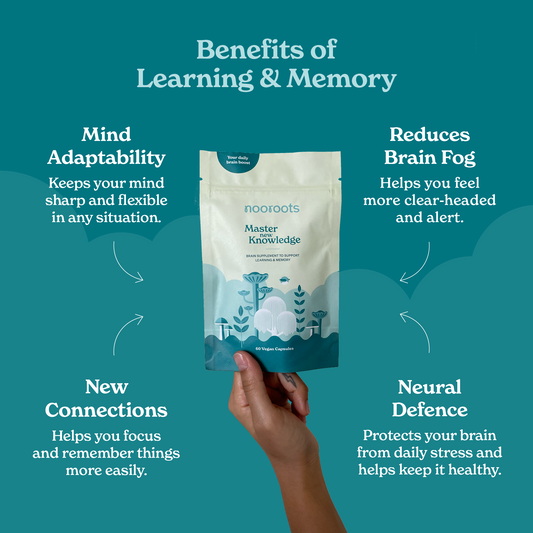Expert Writer ✓
About the Author
Charlotte was awarded a Master of Science degree in chemistry from the University of Bristol. She is currently completing a PhD at the University of Leeds.
Contents
- The History of the Blueberry
- Blueberry Benefits
- Blueberry Mechanism of Action
- Blueberry Side Effects
Blueberry: A Health Guide to Safe and Effective Supplementation

The History of the Blueberry
The blueberry dates back over 15,000 years ago, to North America. Native Americans used to use species of the Vaccinium genus (which blueberries are one of) for their medicinal purposes1.
Blueberries consist of two main types: lowbush (wild) and highbush (usually what we buy in the supermarket). The first successful cultivation of highbush blueberries was in 1912 and the blueberry market has since exploded, with North America now growing 1 billion pounds of blueberries each year1,2.
These nutrient-packed berries, whilst bursting with flavour, also have incredible neuroprotective properties and other positive effects for our health.
Blueberry Benefits
The numerous health benefits of blueberries began to gain recognition in the early 2000s, and nowadays are often named a superfood. Their superfood status is due to their many positive impacts on our health, which include:
- Brain boosting: Research has shown that blueberry intake can slow cognitive decline, and delay aging by up to 2.5 years3.
- Memory enhancing: Daily consumption of blueberry juice over 12 weeks caused a group of adults to show improved memory and learning, and also reduced symptoms of depression4.
- Antioxidant: A study on adults consuming blueberry juice showed a 20% increase in protection against oxidative DNA damage5!
- Anti-inflammatory: Research has shown that eating blueberries can reduce inflammation caused by running and other strenuous exercise6.
Blueberry Mechanism of Action
Blueberries are rich in flavonoids, in particular anthocyanins. These compounds all fall into the family of compounds known as a polyphenols7,8.
Cognitive decline and memory problems can come about due to oxidative stress and inflammation in the brain. Oxidative stress is caused by an excess of free radical species and is particularly problematic for our brain where it can cause cell and DNA damage7,8.
Scientists have found anthocyanins in areas of the brain used for memory and learning, showing that these polyphenols can cross the blood brain barrier9,10. These compounds are antioxidants, and reduce the amounts of free radicals in the brain, thus protecting it against cell and DNA damage7!
This means that blueberries, due to their richness in anthocyanins, can boost brain function and enhance memory and learning4.
Blueberry Side Effects
There are very few side effects associated with eating blueberries, however eating them at very excessive levels may cause the following effects11:
- Digestion issues
- Increased risk of bleeding/bruising
- Lower blood glucose
- Sensitivity to salicylates
Evidence
- History of Blueberries. Blueberry.org. https://blueberry.org/about-blueberries/history-of-blueberries/ (accessed 2022-05-25).
- The history of blueberries: From Native American staple to domesticated superfood: University of Illinois Extension. https://extension.illinois.edu/blogs/garden-scoop/2019-01-19-history-blueberries-native-american-staple-domesticated-superfood (accessed 2022-05-25).
- Devore, E. E.; Kang, J. H.; Breteler, M. M. B.; Grodstein, F. Dietary Intakes of Berries and Flavonoids in Relation to Cognitive Decline. Annals of Neurology 2012, 72 (1), 135–143. https://doi.org/10.1002/ana.23594.
- Krikorian, R.; Shidler, M. D.; Nash, T. A.; Kalt, W.; Vinqvist-Tymchuk, M. R.; Shukitt-Hale, B.; Joseph, J. A. Blueberry Supplementation Improves Memory in Older Adults. J. Agric. Food Chem. 2010, 58 (7), 3996–4000. https://doi.org/10.1021/jf9029332.
- Wilms, L. C.; Boots, A. W.; de Boer, V. C. J.; Maas, L. M.; Pachen, D. M. F. A.; Gottschalk, R. W. H.; Ketelslegers, H. B.; Godschalk, R. W. L.; Haenen, G. R. M. M.; van Schooten, F. J.; Kleinjans, J. C. S. Impact of Multiple Genetic Polymorphisms on Effects of a 4-Week Blueberry Juice Intervention on Ex Vivo Induced Lymphocytic DNA Damage in Human Volunteers. Carcinogenesis 2007, 28 (8), 1800–1806. https://doi.org/10.1093/carcin/bgm145.
- McAnulty, L. S.; Nieman, D. C.; Dumke, C. L.; Shooter, L. A.; Henson, D. A.; Utter, A. C.; Milne, G.; McAnulty, S. R. Effect of Blueberry Ingestion on Natural Killer Cell Counts, Oxidative Stress, and Inflammation Prior to and after 2.5 h of Running. Appl. Physiol. Nutr. Metab. 2011, 36 (6), 976–984. https://doi.org/10.1139/h11-120.
- Subash, S.; Essa, M. M.; Al-Adawi, S.; Memon, M. A.; Manivasagam, T.; Akbar, M. Neuroprotective Effects of Berry Fruits on Neurodegenerative Diseases. Neural Regen Res 2014, 9 (16), 1557–1566. https://doi.org/10.4103/1673-5374.139483.
- Khurana, S.; Venkataraman, K.; Hollingsworth, A.; Piche, M.; Tai, T. C. Polyphenols: Benefits to the Cardiovascular System in Health and in Aging. Nutrients 2013, 5 (10), 3779–3827. https://doi.org/10.3390/nu5103779.
- Andres-Lacueva, C.; Shukitt-Hale, B.; Galli, R. L.; Jauregui, O.; Lamuela-Raventos, R. M.; Joseph, J. A. Anthocyanins in Aged Blueberry-Fed Rats Are Found Centrally and May Enhance Memory. Nutritional Neuroscience 2005, 8 (2), 111–120. https://doi.org/10.1080/10284150500078117.
- Willis, L. M.; Shukitt-Hale, B.; Joseph, J. A. Recent Advances in Berry Supplementation and Age-Related Cognitive Decline. Current Opinion in Clinical Nutrition & Metabolic Care 2009, 12 (1), 91–94. https://doi.org/10.1097/MCO.0b013e32831b9c6e.
- Side-effects of Ingesting Excess Blueberries - Benefits of Blueberry. https://www.benefitsofblueberry.com/side-effects-ingesting-excess-blueberries/ (accessed 2022-05-26).







